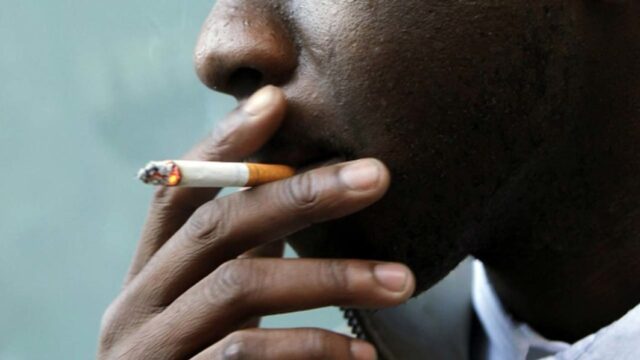
Growing up back then, one couldn’t help but notice the feeling of wonder and confusion, on the face and countenance of an average Nigerian child or even adult whenever any tobacco company or cigarettes advertisement came up on the TV screen and ends with the caption; “smokers are liable to die young” or “remember Smoking is dangerous to Health.”
The above constant warnings after these lovely commercials definitely made many to question the rationale behind putting up the adverts in the first place.
Funnily enough that was the truth, yes smoking was a habit that could easily have adverse negative effects on one’s health especially in the area of breathing lungs and respiration.
Moreso, the UN health agency warned that tobacco’s killer toxins also wreak havoc on the environment.
In a recent research conducted on the death toll of diseases in Nigerian it was statistically discovered that Tobacco smokers in Nigeria hits nearly 30,000 annually.
According to the discovery made by an Abuja-based Centre for the Study of Economies of Africa (CSEA) has reported that a research it conducted had revealed that 28,876 deaths related to tobacco smoking are recorded annually in Nigeria.
Speaking on the hazardous health challenges caused by Smoking, Marco Castradori, a research associate with the CSEA, reintegrated the importance of this situation in a seminar delivered on Monday, in Kano, titled; ‘Dissemination workshop on the health burden and economic cost of smoking in Nigeria.
According to Mr Castradori, the number represents around 16 per cent of deaths from smoking-related diseases and above five per cent of all cases of deaths.
“Among the disease analysed, nearly 737,366 events are expected each year, of which 127,859 representing 17 per cent are attributable to cigarette consumption.
“In terms of costs, these conditions burden the Nigerian healthcare system with nearly N634 billion, of which 526.4 billion, representing 83 per cent are smoking-attributable treatment costs.
“Chronic obstructive pulmonary disease (COPD) represents the top cause of smoking-attributable mortality with 29 per cent, followed by Ischemic heart disease with 17.5 per cent, stroke with 13 per cent.
“Other diseases include; passive smoking, 11.5 per cent, lower respiratory tract infection 11 per cent, and also cardiovascular deaths of non-ischemic cause 5.5 per cent,’’ he said.
He further explained that smoking generates a direct annual treatment cost of N526.45 billion, which, he said, was equivalent to 0.36 per cent of the Nigerian GDP in 2019, and 9.63 per cent of the country’s annual healthcare spending.
“Furthermore, adding up productivity losses due to illness, early deaths and informal caregiver, tobacco-related diseases represents 0.44 per cent of the GDP,’’ said Mr Castradori.
He added that the research had suggested that if the price of tobacco cigarettes were to be raised, by 50 per cent, the 23,838 deaths from the smoking-attributable diseases would be averted in 10 years.
He said this would lead to subsequent savings on healthcare costs with increased tax revenue.
“In Nigeria, the tobacco tax collection does not currently fully cover the direct healthcare costs attributed to smoking. We also supplement the quantitative analysis through focus group discussions with smokers across six Nigeria’s geopolitical zones.
“Five major key themes emanated from the discussions with the participants include; psychological effect, stigmatisation, reduced productivity, fall in standard of living and change in physical health.
“Overall, the result underscores the need for broader tobacco control policies in Nigeria through more tobacco taxes and other supplementary measures,’’ he said.
Also, in her presentation, tagged ‘Effective tobacco control regulation in Nigeria: Assessment of Tobacco Taxation and illicit trade’, another research associate, Faiza Muntaka, said the pervasiveness of illicit tobacco products also represents a severe cost for the development efforts of the government.
“This pervasiveness of illicit tobacco products not only harms the health of consumers by stimulating greater consumption of lower standard goods at affordable prices, but also represents a severe cost for the development efforts of the government.
“A significant tax revenue reduction, approximated in the range of N12 billion, the loss of national productivity associated with morbidity and the increased healthcare costs all compound to pose a significant barrier to Nigeria’s development.
“However, we must make it clear that the issue of the illicit market does not in itself justify the suboptimal regulation of the tobacco industry in Nigeria.”
Obviously it is a given that the appropriate authorities have made and are still making efforts to create the educational awareness of the dangers involved in issues relating to smoking of cigarettes and other related substance s especially from the health perspective. It therefore remains to see if many who indulge in its usage are more concerned about those health or the satisfaction derived therein.
Gift Joseph Okpakorese
Staff Writer







